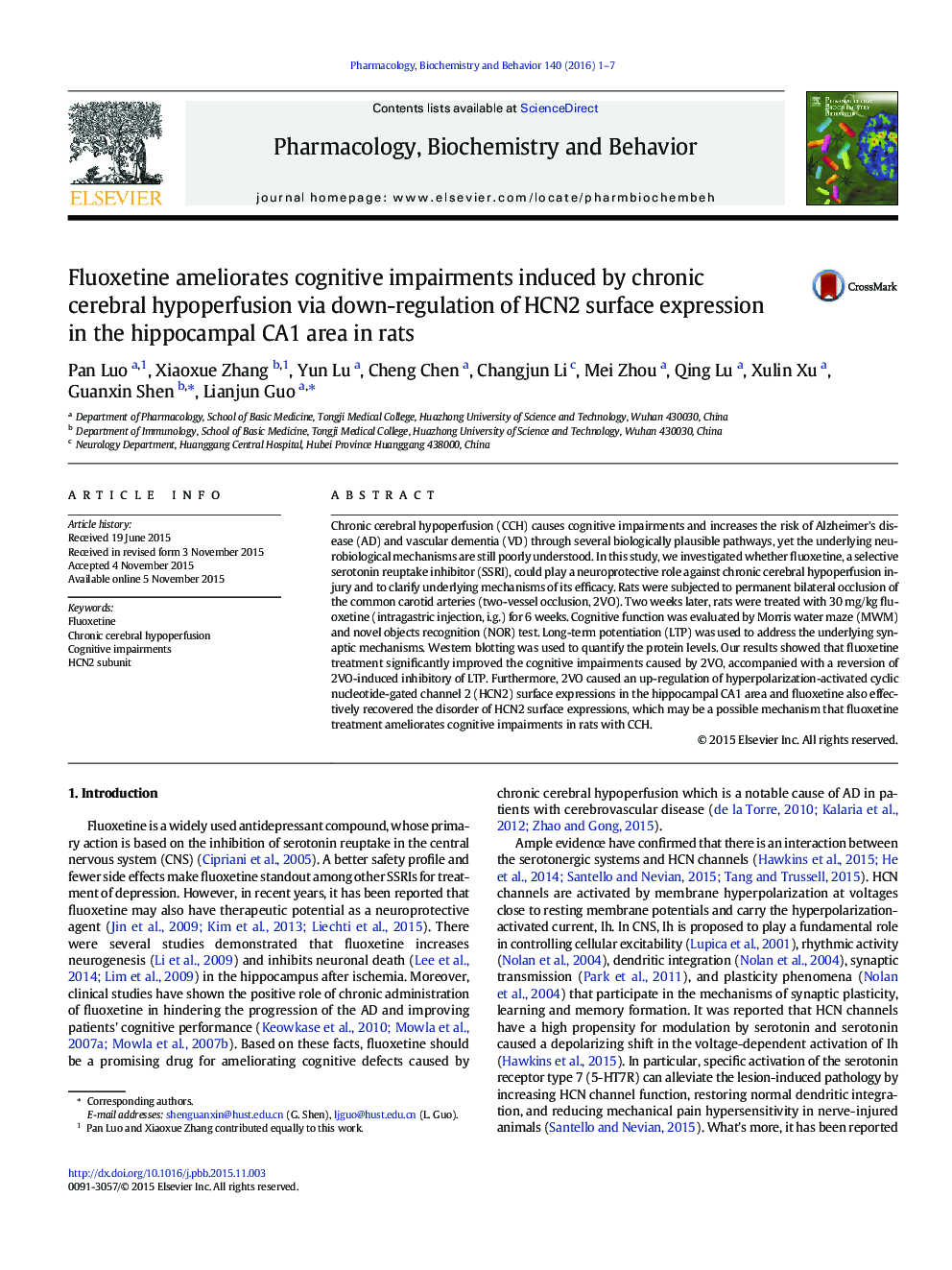| Article ID | Journal | Published Year | Pages | File Type |
|---|---|---|---|---|
| 2012674 | Pharmacology Biochemistry and Behavior | 2016 | 7 Pages |
Abstract
Chronic cerebral hypoperfusion (CCH) causes cognitive impairments and increases the risk of Alzheimer's disease (AD) and vascular dementia (VD) through several biologically plausible pathways, yet the underlying neurobiological mechanisms are still poorly understood. In this study, we investigated whether fluoxetine, a selective serotonin reuptake inhibitor (SSRI), could play a neuroprotective role against chronic cerebral hypoperfusion injury and to clarify underlying mechanisms of its efficacy. Rats were subjected to permanent bilateral occlusion of the common carotid arteries (two-vessel occlusion, 2VO). Two weeks later, rats were treated with 30Â mg/kg fluoxetine (intragastric injection, i.g.) for 6Â weeks. Cognitive function was evaluated by Morris water maze (MWM) and novel objects recognition (NOR) test. Long-term potentiation (LTP) was used to address the underlying synaptic mechanisms. Western blotting was used to quantify the protein levels. Our results showed that fluoxetine treatment significantly improved the cognitive impairments caused by 2VO, accompanied with a reversion of 2VO-induced inhibitory of LTP. Furthermore, 2VO caused an up-regulation of hyperpolarization-activated cyclic nucleotide-gated channel 2 (HCN2) surface expressions in the hippocampal CA1 area and fluoxetine also effectively recovered the disorder of HCN2 surface expressions, which may be a possible mechanism that fluoxetine treatment ameliorates cognitive impairments in rats with CCH.
Related Topics
Life Sciences
Biochemistry, Genetics and Molecular Biology
Biochemistry
Authors
Pan Luo, Xiaoxue Zhang, Yun Lu, Cheng Chen, Changjun Li, Mei Zhou, Qing Lu, Xulin Xu, Guanxin Shen, Lianjun Guo,
